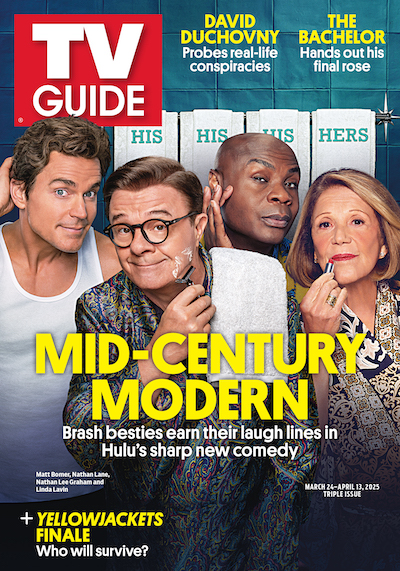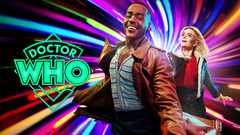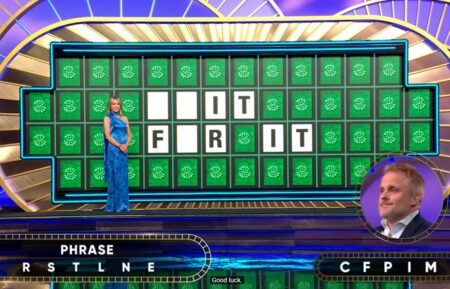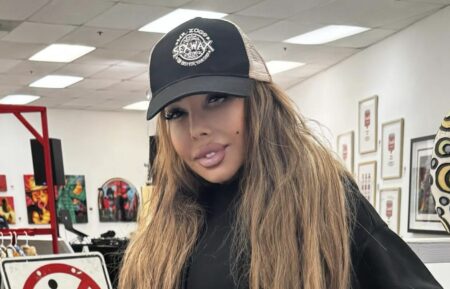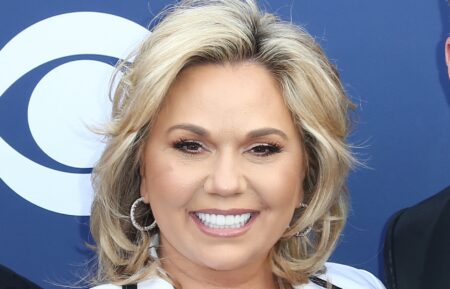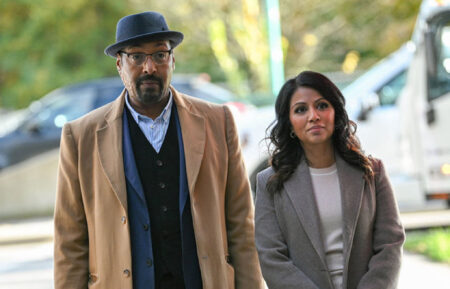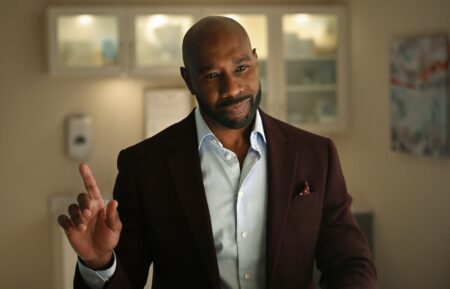‘Doctor Who’: Jinkx Monsoon on Playing Maestro & Power of Music
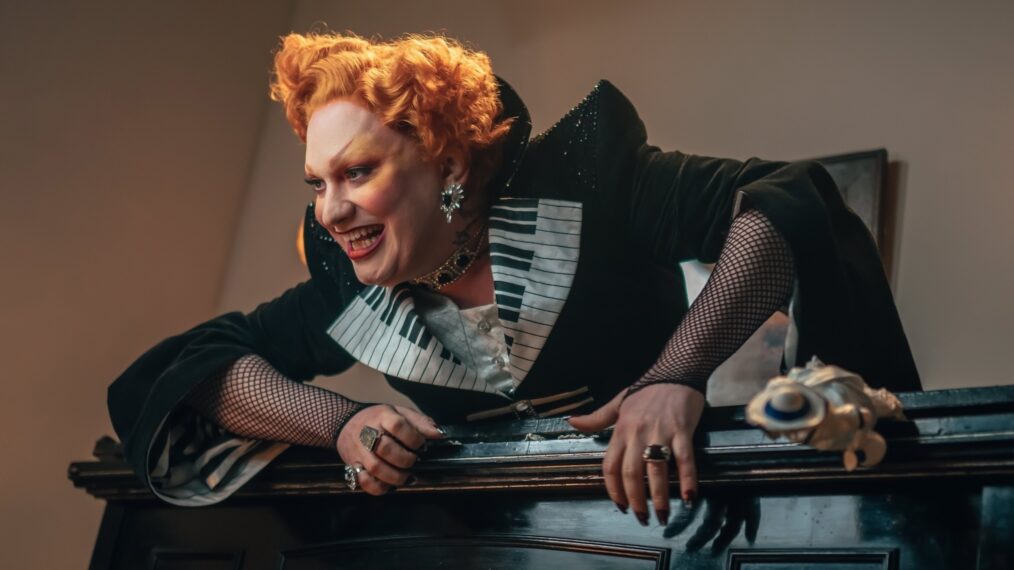
Spoiler Alert
[Warning: The below contains MAJOR spoilers for the Doctor Who Season 1 episode “The Devil’s Chord.”]
Simply put, Jinkx Monsoon is fun, both onscreen as Maestro and off, discussing her villainous turn on Doctor Who.
The Doctor (Ncuti Gatwa) and companion Ruby Sunday (Millie Gibson) head to the ’60s to see The Beatles in the recording studio, only to discover something is really wrong with music. And to bring it back, they must face off against Maestro, who turns out to be one of the Toymaker’s children. They are defeated, in a music battle that features The Beatles, but as they’re banished, they warn, “the one who waits is almost here.”
Below, Jink Monsoon discusses her guest spot and shares hopes for a return appearance.
I know that Russell T. Davies approached you to play Maestro, so talk about the conversations you had with him.
Jinkx Monsoon: So before the Maestro conversation, Russell and I had been friends for years and years, and he is an avid patron of the arts, and he’s come to see many shows that I’ve done with my music partner, Major Scales, in the UK. We’ve done a lot of UK tours over there with our absurdist cabaret shows. And then he’s also seen The Jinkx and DeLa Holiday Show year after year. But apparently when he came to see my show Together Again, Again, which I’m actually about to remount in Seattle at the Seattle Repertory Theater. That is a show set in a dystopian future where Jinkx is in her 80s looking back on her career and I play kind of a Norma Desmond-esque version of myself, reliving my glory days and telling stories of my youth. And Russell saw that show in Manchester, and apparently on the walk home was like, Jinkx would be perfect for Maestro. Something about me playing myself in my 80s pinged in his brain for this character. And the character’s just so well written and one of those once-in-a-lifetime characters. I mean, how often does an actor get to play a god? Your choices are infinite.
We hear the Giggle, which Doctor Who has made chilling, as well as the Maestro’s connection to the Toymaker. But you filmed this before the 60th anniversary specials were released, so how much did you know about how your character would be fitting into the wider world of Doctor Who?
I knew what was pertinent to me in playing my character, and it’s a very, very different project, but when I worked on Steven Universe, which is a sci-fi cartoon, they safeguard the sci-fi very intensely. No projects have I ever worked on that had such an intense closed lip nature about it as the sci-fi ones. But Russell and the director, Ben Chessell, were just very candid with me about how my character fits into the Doctor Whoniverse. And luckily, I’m an avid sci-fi person. Isn’t there just a hint of Lovecraft in this but just [a bit], because who needs too much Lovecraft, right? But I love this merging of Doctor Who, which has always been so science and sci-fi based with just a hint of fantasy. It just feels so perfect for this new season of Doctor Who.
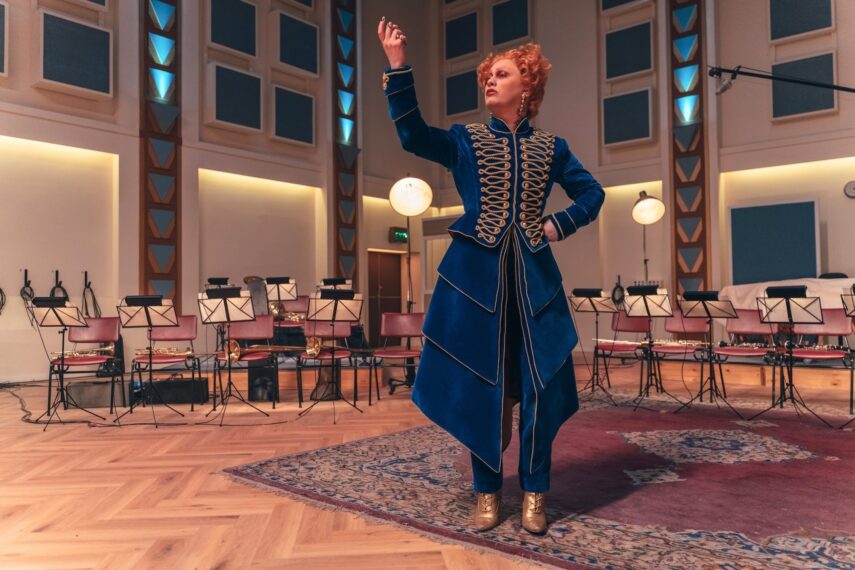
Disney+
We have to talk about the look of Maestro because the clothes, even just the way you move, it all makes for quite the complete picture of why this is a villain who should be feared. So talk about all that coming together. It’s all very theatrical.
Maestro is the embodiment of music, and it is funny because I was going back to my little bit of ballet training that I had for Maestro. But it was more so that I was hearing music in my head and moving to the music that I was hearing. Dance and music kind of go hand in hand. So I just really loved getting to take everything that I have to offer as a performer and put it into this character because why the heck not?
… I have to say having heard the story from Russell about how he got the idea to cast me as this character, and then in the script, the character description said, “Think the Joker, the child grabber from Chitty Chitty Bang Bang, and Jinkx Monsoon.” I was in the character description. So there was this part of me that was like, the things that I already do as a performer, let’s take those little affectations to god status. I have a tendency to move with a little bit of kinesthetic awareness because of my training. And then I just really let loose on that. And again, the director Ben was so wonderful because he let me try everything at least once, and he would really direct me to keep me within the world of Doctor Who and within the world of the episode. But he at least let me try everything I wanted to do once. That’s a pretty simpatico relationship that we had.
Talk about filming the music battle from going against the Doctor and Ruby to The Beatles defeating Maestro, which is something that can really only be said on this show.
When you work on a TV set, the rehearsal with your scene partners is minimal. We got to sit down and read through the episode, Ncuti, Millie, Ben, and I, and it was just from day one, we were finding little things naturally, but just kind of when you have good writing, you don’t have to think too hard. You just have to be committed to the character you’re playing, committing and honoring the text that you’re working with, and then surrender to your scene partner. And then the rest kind of does itself. Ncuti and Millie were just so incredible to work with, so generous every take, and a lot of it just kind of develops naturally when you’re doing your thing. And when you get to be in such gorgeous costumes and such fully realized sets, it’s like as long as you’re present and in character, the work does itself.
What I loved about the music battle is the whole episode has this gravitas to it because that’s who Maestro is. Maestro is very grand. And I think about the scene with Maestro at the piano and just how grand and over the top that is, and then to match that energy but to counter it, we have the music battle, which is almost like a Bugs Bunny cartoon, right? It’s almost like Merrie Melodies, Looney Tunes.
And what I loved is this character got to go on such a freaking journey through the episode. They come in just kind of like Disney villain, and then they had this grand over the top grand domme moment, and then they had this frantic, frenetic, Looney Tunes, absolute bonkers sight to them. And what an incredible character to get to play. I’ve been telling people I had a checklist of things that I wanted to do someday as an actor. And in this one episode, I’ve done them all now. And so I have to have a whole new checklist made up because I’ve now played a Disney villain who flew. [Laughs] I can’t believe how many of my dreams came true in this one role.
I got to sing. I got to dance, I got to play instruments. I did play the double bass, the standup bass in middle school, and I have not practiced since then. We’re talking about three years of bass 20 years ago. But Ben, the director, does play bass. And he reminded me how to do the jazz riff. And so I was actually playing the bass. That was the only instrument I was actually playing. [Laughs]
Maestro was clearly a very formidable enemy for The Doctor. What stood out about them to you that made that the case?
When you control something like music, what I kind of got from this episode was it’s almost like controlling an element. It’s almost like controlling fire or water or air. Because what we find out in this episode is music is essential to our existence. Artistic expression is essential to our existence. And in this episode we focus on music. But one, I love that this episode has that message behind it. And then two, what makes a really good villain is when they have a mission that they believe in. And even though Maestro’s mission is depraved and selfish and objectively evil, Maestro is a god who is immortal. And I think about how characters like that just get bored, right? And so Maestro has concocted this way to stand out amongst all the other gods.
And Maestro, we get a little glimpse of it with the piano, singing about how mean Daddy was. Maestro has this tiny bit of an inferiority complex, I think, and so has concocted this mission that is going to show to all the other gods just how formidable Maestro is. The Doctor being there is this added twist that is very exciting to Maestro at first because Maestro doesn’t meet an equal very often, but then it’s just annoying because Maestro has something beautiful that they’re trying to create. And so being able to play that rather than just playing evil with a capital E, that is so much more fulfilling as an actor. And that is another credit to Russell’s writing. This show is over the top and zany and kooky and beautiful, and it’s a spectacle, but at its heart, it’s telling real stories with real import in beautiful language. Russell is just such a prolific writer. I haven’t watched anything of Russell’s that hasn’t moved me, Doctor Who included.
Maestro is defeated and you get that great ominous last line that the one who waits is almost here, but could we possibly see you again?
Well, I can’t speak to anything. Of course, I was pitching ideas on set. I was like, “What if… just spitballing here.” But it’s not my place to say anything like that. But I do love that Maestro is just banished. They aren’t defeated forever. They are just banished. And it gives me the sense that Maestro has more to do, or at least that that’s a possibility.
… What a dream job. Every actor, every crew member, every producer, everyone there was so happy to be there. It was a lovely, lovely experience. And just the trust and respect was palpable from day one. And I’ve complained at times in my career being a drag queen and being a transfeminine performer, that there’s been times in this career where you get kind of tokenized as a visibly queer entertainer, let’s say. And it’s nice to be on a set where no one is doubting my abilities just because of the medium I work within.
Doctor Who, Fridays, 7/6c, Disney+
From TV Guide Magazine
How Hulu's 'Mid-Century Modern' Is a 'Golden Girls' for Our Times
Settle in for some older and bolder laughs with the BFFs of a certain age in the new comedy starring Nathan Lane, Matt Bomer, and Nathan Lee Graham. Read the story now on TV Insider.


